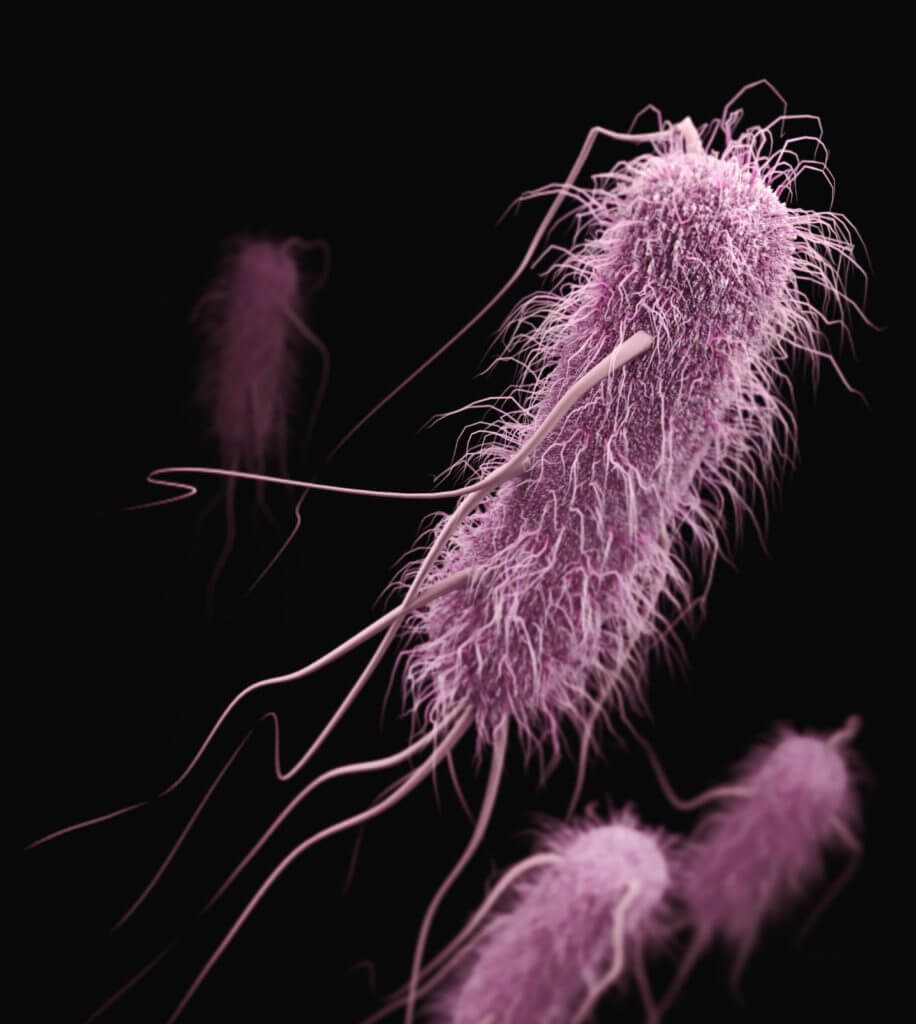The bacterial toxin that causes food poisoning is linked to colorectal cancer, according to a new study. The protein, called UshA, is common in Escherichia coli (E. coli) bacteria and can be blamed for typical food poisoning symptoms like vomiting and diarrhea. It also damages the DNA in intestinal cells, which potentially triggers colon cancer, researchers say.
This new information supports the idea that some of the millions of new colon cancer cases throughout the world every year may start out as mild food-poisoning episodes. It also reveals the possibility for the development of future drugs that may neutralize the toxin and prevent colorectal cancers.
Bacterial Experiments

Previous research suggests that frequent infections related to bacteria that reside in the gut and chronic gut inflammation can trigger colon cancer. Less frequent and shorter-lasting infections (24 to 48-hour events) like traveler’s diarrhea, have mostly been viewed as non-cancer causing.
For this study, the researchers used a mouse model of bacterial diarrheal disease using the bacterium Citrobacter rodentium that has strong similarities to the human-infecting diarrheal strain of E coli. The results showed strong evidence of DNA damage in the gut-lining cells in the mice.
The scientists noted that some bacteria contain a syringe-like appendage that is used to inject proteins into host cells. One of these proteins, UshA, causes DNA damage to the gut cells in the mice and contributes to the rapid development of tumors.
“We hope this study will motivate other researchers to do epidemiological studies to investigate this potential link between transient diarrheal infections and colon cancer development,” says study senior author Fengyi Wan, Ph.D., in a statement. Dr. Wan is an associate professor in the Department of Biochemistry and Molecular Biology at the Bloomberg School.
Future Research
Additional research into the mutations of tumors infected with the bacterial toxin found that there are many similarities to those documented in human colon tumors. This critical find highlights the important impact on human health.
Since detection of colon tumors usually happens after many years of development, confirming this potential impact will not be an easy task, Wan says. He suggests that epidemiological studies in sub-Saharan Africa are required to determine the link between UshA microbes and colon cancers, as diarrheal infections and colorectal cancers are very common there.
Additionally, Wan is currently collaborating with other scientists to develop UshA toxin inhibitors.
“In principle,” he says, “you could give such inhibitors to patients who present with diarrheal disease to protect them from cancer-promoting DNA damage.”
The findings of Dr. Wan and others are published in Cancer Discovery.
